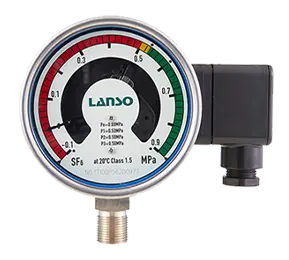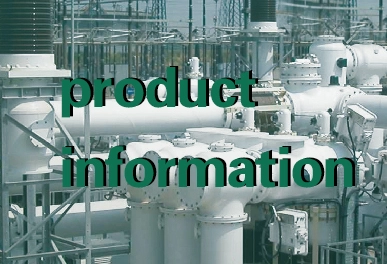Introduction to SF6 Gas Density Meters
GIS, also known as gas insulated switchgear (GIS), is composed of circuit breakers, disconnect switches, grounding switches, current transformers, voltage transformers, arresters, busbars, connectors, and terminals. All of these devices or components are enclosed in a metal grounded shell filled with SF6 insulating gas under certain pressure, hence it is also referred to as SF6 Insulated Switchgear. Inside GIS, the SF6 gas is divided into several independent compartments using rubber-supported composite insulators. To monitor the SF6 gas density, high-voltage switchgear is equipped with gas density relays (also known as density monitors, density control panels, and density meters).
In an enclosed container, the pressure of SF6 gas at a certain temperature can represent its density.The industry standard uses the SF6 gas pressure at 20°C as the standard value. When the SF6 gas pressure falls below the preset alarm pressure value, a density relay with temperature compensation will send out an alarm signal indicating that gas needs to be added promptly. If the gas density further decreases to the lockout pressure value, devices like circuit breakers will receive a lockout signal, prohibiting operation to ensure the safe operation of the equipment and the system.
Requirement for Regular Calibration of SF6 Gas Density Meters
Various reasons, such as long-term operation, may cause characteristic changes in SF6 gas density relays, such as movement stalling, insensitivity, poor contact, and decreased temperature compensation characteristics. To ensure accurate monitoring, regular calibration is especially important. Through calibration, potential issues can be promptly identified and corrected, ensuring that the relay accurately operates in response to environmental temperature changes. Therefore, to guarantee the normal operation and safety of power equipment, timely calibration of SF6 gas density relays is essential.
Causes and Handling of Pressure Abnormalities
Causes of density meter pressure abnormalities:
Gas leakage: This is the most common reason, causing a pressure drop.
Density meter damage or circuit damage, causing false alarms.
Drastic environmental temperature changes, leading to a significant temperature difference between the GIS gas compartment and the density meter, causing temperature compensation errors and value deviations.
Handling methods:
Gas leakage: Immediately stop the operation of the faulty equipment (if feasible), use a leak detector to find the leak points of the equipment and handle them accordingly. Add an appropriate amount of SF6 gas to the required pressure value.
Density meter damage: Replace the damaged density meter with a new one for calibration and testing, and check if the circuit is reliable.
Drastic temperature changes: Once the temperature stabilizes, recheck the pressure values. If it remains abnormal, other potential issues need to be investigated and resolved one by one.
Related Article for Reference







